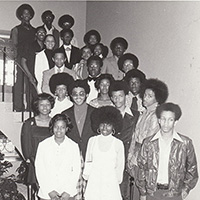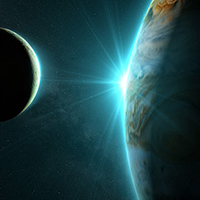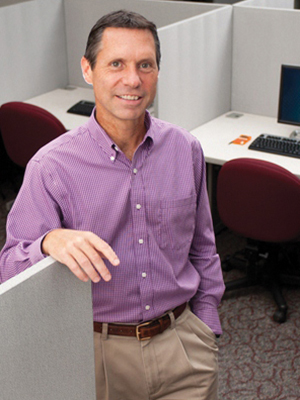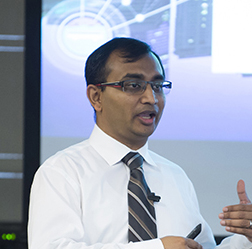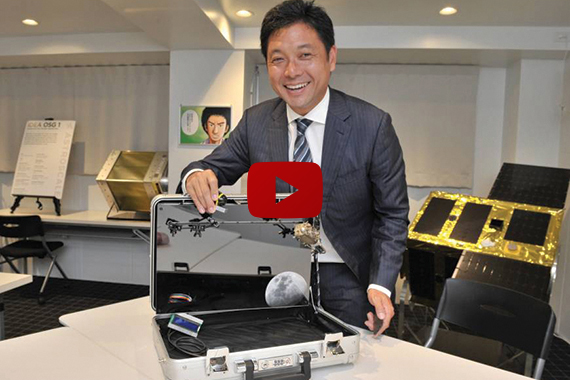 Purdue MBA alumnus Nobu Okada, founder and president of Astroscale, displays a desktop model of space debris removal technology the company plans to commercialize following a test launch and demonstration in 2020. (Photo provided by Astroscale)
Purdue MBA alumnus Nobu Okada, founder and president of Astroscale, displays a desktop model of space debris removal technology the company plans to commercialize following a test launch and demonstration in 2020. (Photo provided by Astroscale)
Clearing a Path for the Future
Nobu Okada (MBA ’01) shares his story
When Purdue alumnus Nobu Okada (MBA ’01) visited the West Lafayette campus in October to share his career story with students at the Krannert Executive Forum, one of his first stops was the bronze statue of his boyhood hero, Neil Armstrong, in front of the Hall of Engineering that bears his name.
Like many young people of his generation, Okada wanted to be an astronaut, so at the age of 15 he traveled from his native Japan to attend Space Camp at the U.S. Space and Rocket Center in Huntsville, Alabama.
There, he met Japan’s first astronaut, Mamoru Mohri, who handed Okada a handwritten note with a simple message: “Space is a place where your generation shines.”
Like most would-be astronauts, however, Okada took a different path in his professional life, including leadership roles at several top financial services companies. He caught the entrepreneurial spirit in 2009 and founded a software company in Singapore, but after several years found himself in a “mid-career” crisis.
“The challenge of space was still waiting for me,” he says, “but not in a way that I anticipated. Today, space is full of rocket bodies, defunct satellites and other fragments of debris that are flying around the Earth at eight kilometers per second — that’s almost 10 times faster than a bullet.”
Okada says space debris not only affects space agencies like NASA, but also our daily lives, which are dependent on satellite technologies. “Without satellites, we could not forecast or prepare for catastrophic weather events,” he says. “We could not use GPS to navigate planes, ships or vehicles. Logistics and supply chain would fail. Stock exchange markets around the world would become chaotic.”
Merging his technical background and startup experience, Okada tackled the growing problem in 2013 by founding Astroscale Pte. Ltd. with a mission to assure orbital sustainability and secure long-term spaceflight safety for the benefit of future generations.
After raising more than $53 million in funding from private venture capital firms, a public-private-partnership, and other investors, Astroscale formed a partnership with the Japan Aerospace Exploration Agency in September, and Surrey Satellite Technology Ltd. (SSTL) in November 2017. Forging partnerships such as these has led to the creation of a global supply chain that allows Astroscale to become a leading name in the international small satellite and orbital debris removal market.
One of the primary contributions from SSTL will be to supply Okada’s company with a “Target” satellite for its inaugural End-of-Life Service by Astroscale-demonstration (ELSA-d) mission, which is scheduled to launch early 2020. ELSA-d will simulate the capture of orbital debris and is designed to validate key technologies for end-of-life spacecraft retrieval and disposal services.
The SSTL satellite will represent a piece of space debris and will be attached to Astroscale’s “Chaser” satellite for launch and deorbit. Once in orbit, the two craft will perform a series of complex separation and capture maneuvers using rendezvous and docking algorithms before reattaching and safely degrading as they reenter Earth’s atmosphere.
If successful, Astroscale plans to start mass-producing similar satellites in the early 2020s.
“Solving the problem of space debris is more than a business opportunity to me,” Okada says. “It also reconnects me with my childhood passion and helps ensure the safety of future space exploration.”


